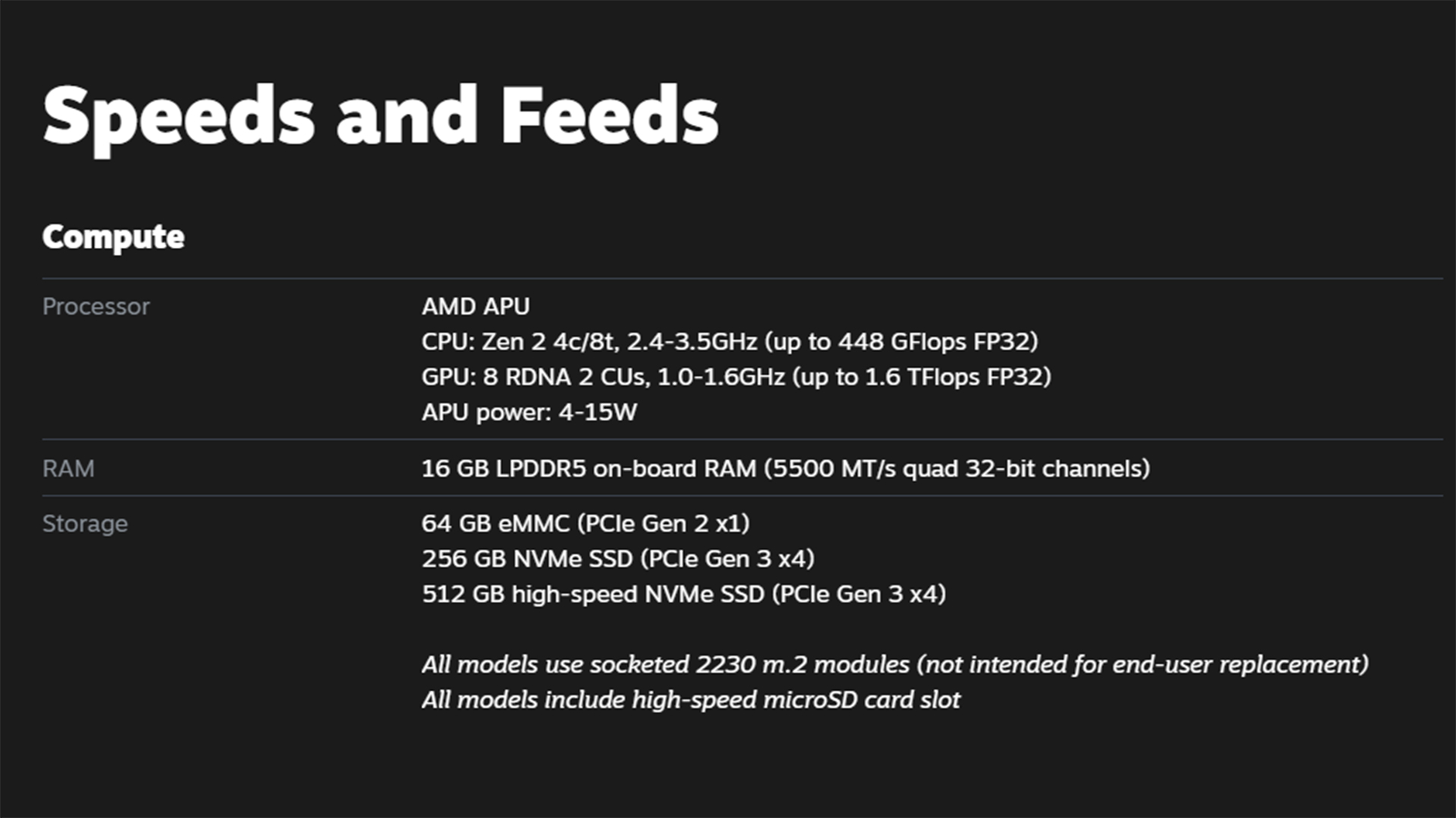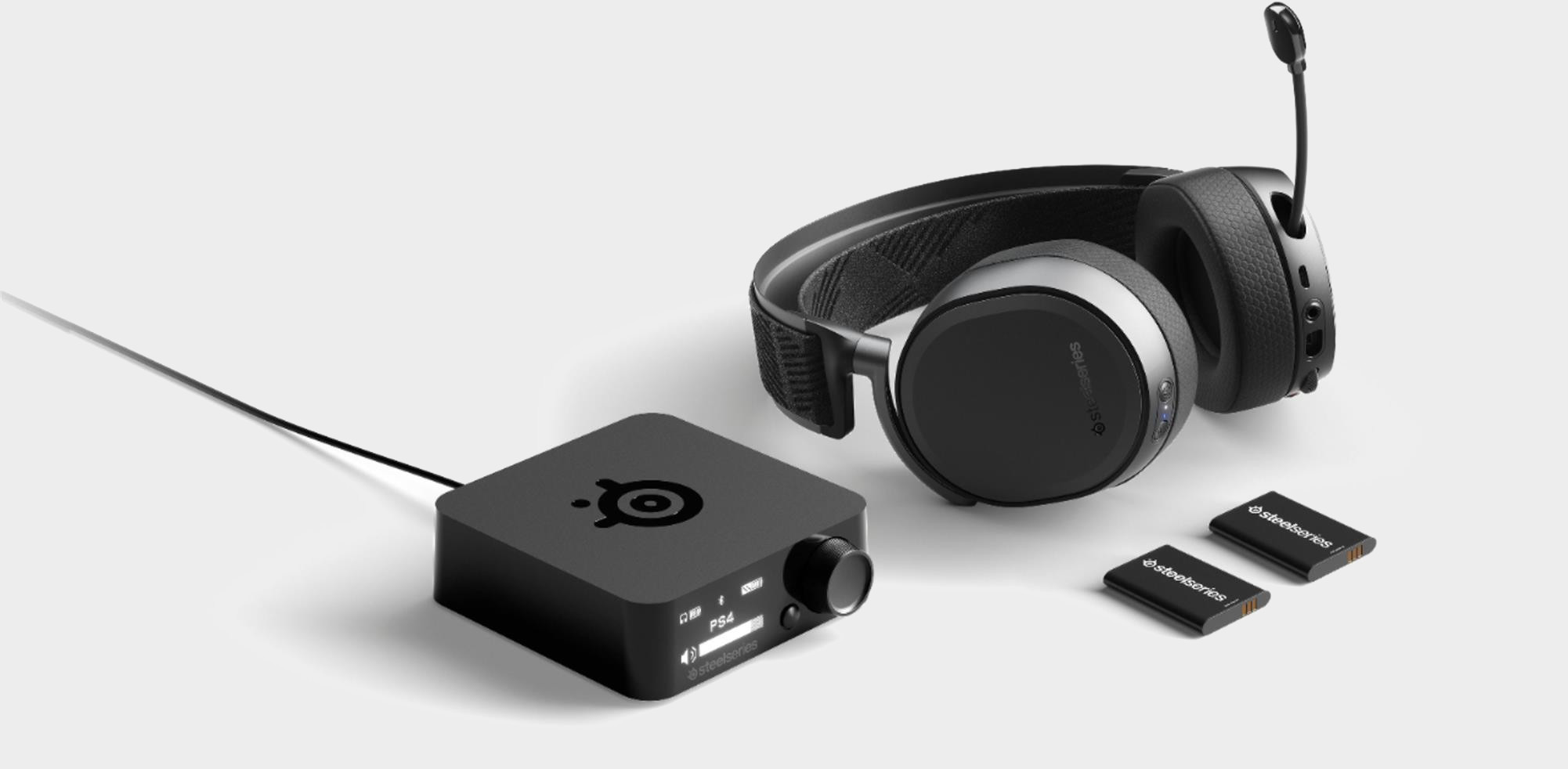Turns out the Steam Deck's final spec is more impressive than Valve first listed
Valve corrects the Steam Deck specs page, and its massive memory bandwidth is hugely important for its performance.

Valve has updated the Steam Deck specifications to correctly report the handheld's genuinely impressive memory specification. First noted with dual-channel RAM, the updated specification now correctly lists quad-channel 32-bit LPDDR5 memory with speeds up to 5,500MT/s.
The raw speed that Valve is touting for its handheld console, 5,500MT/s, hasn't actually changed since it was announced, but as Twitter user Locuza rightly points out, something didn't add up with the initial LPDDR5 spec listed by Valve.
A discussion and curiosity is resolved now.Van Gogh, which is used by Valve's Steam Deck, has 4 UMCs.I expected 4x 16-Bit (a memory channel under LPDDR5 is actually 16-Bit wide). The official spec claimed 5.5 Gbps (dual-channel), which didn't made sense to me.It got corrected pic.twitter.com/orgzMKJldEJuly 19, 2021
The Steam Deck was first listed with dual-channel LPDDR5, however, that has now been corrected to quad-channel 32-bit LPDDR5. An important distinction, as this confirms the Steam Deck has a tremendous amount of bandwidth relative to its expected GPU performance.
Memory bandwidth is of particular importance for a device like the Steam Deck, and that comes down to Valve's choice of chip.
The Steam Deck is powered by an AMD APU—a slice of silicon containing both CPU and GPU—and if there's one thing that's incredibly useful for an APU, it's memory bandwidth. That's because both CPU and GPU share access to the same memory pool, thus doubling the demands on the memory component versus a conventional PC setup.

Best wireless gaming mouse: ideal cable-free rodents
Best wireless gaming keyboard: no wires, no worries
Best wireless gaming headset: top untethered audio
A desktop PC with a discrete graphics card needn't worry in quite the same way. While it's still important to have plenty of memory bandwidth available to your key components, it shares the burden across two dedicated pools of memory—today, that's most commonly DDR4 memory for the CPU and GDDR6 memory for the GPU.
So even more reason to be excited by the Steam Deck? Indeed, Valve's handheld device is shaping up to be an exciting device, and following this correction it appears even more a well-considered one.
Keep up to date with the most important stories and the best deals, as picked by the PC Gamer team.

Jacob earned his first byline writing for his own tech blog. From there, he graduated to professionally breaking things as hardware writer at PCGamesN, and would go on to run the team as hardware editor. He joined PC Gamer's top staff as senior hardware editor before becoming managing editor of the hardware team, and you'll now find him reporting on the latest developments in the technology and gaming industries and testing the newest PC components.

